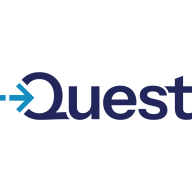

Find out what your peers are saying about Amazon Web Services (AWS), Informatica, Salesforce and others in Cloud Data Integration.


| Company Size | Count |
|---|---|
| Small Business | 22 |
| Midsize Enterprise | 13 |
| Large Enterprise | 18 |
erwin Data Catalog empowers businesses to efficiently manage their data assets, providing a comprehensive overview and governance capabilities. It supports metadata management, enhancing data discovery and curation processes.
erwin Data Catalog offers robust data management tools that streamline data discovery, lineage, and governance. Designed for sophisticated data environments, it ensures efficient metadata control, providing users with an intuitive way to handle and leverage extensive data assets. Its features cater to enterprises looking to optimize data compliance and transformation strategies.
What are the main features of erwin Data Catalog?erwin Data Catalog is successfully implemented in industries such as finance, healthcare, and retail, enabling these sectors to leverage vast data volumes effectively. It enhances operational efficiency by streamlining data management practices, ensuring compliance, and supporting critical data-driven decision-making processes.
Talend Open Studio is a free, open source ETL tool for data integration and Big Data. The solution enables you to extract diverse datasets and normalize and transform them into a consistent format which can be loaded into a number of third-party databases and applications.
Talend Open Studio Features
Talend Open Studio has many valuable key features. Some of the most useful ones include:
Talend Open Studio Benefits
There are several benefits to implementing Talend Open Studio. Some of the biggest advantages the solution offers include:
Reviews from Real Users
Below are some reviews and helpful feedback written by PeerSpot users currently using the Talend Open Studio solution.
Elio B., Data Integration Specialist/CTO at Asset messages, says, "The solution has a good balance between automated items and the ability for a developer to integrate and extend what he needs. Other competing tools do not offer the same grade of flexibility when you need to go beyond what is provided by the tool. Talend, on the other hand, allows you to expand very easily."
A Practice Head, Analytics at a tech services company mentions, “The data integration aspect of the solution is excellent. The product's data preparation features are very good. There's very useful data stewardship within the product. From a technical standpoint, the solution itself is pretty good. There are very good pre-built connectors in Talend, which is good for many clients or businesses, as, in most cases, companies are dealing with multiple data sources from multiple technologies. That is where a tool like Talend is extremely helpful.”
Prerna T., Senior System Executive at a tech services company, comments, “The best thing I have found with Talend Open Studio is their major support for the lookups. With Salesforce, when we want to relate our child objects to their parent object, we need to create them via IDs. Then the upsert operation, which will allow you to relate a child object to the event, will have an external ID. That is the best thing which keeps it very sorted. I like that.”
An Implementation Specialist, Individual Contributor at a computer software company, states, “I can connect with different databases such as Oracle Database or SQL Server. It allows you to extract the data from one database to another. I can structure the data by filtering and mapping the fields.” He also adds, “It is very user-friendly. You need to know the basics of SQL development or SQL queries, and you can use this tool.”
PeerSpot user Badrakh V., Information System Architect at Astvision, explains, "The most valuable features are the ETL tools."
We monitor all Cloud Data Integration reviews to prevent fraudulent reviews and keep review quality high. We do not post reviews by company employees or direct competitors. We validate each review for authenticity via cross-reference with LinkedIn, and personal follow-up with the reviewer when necessary.